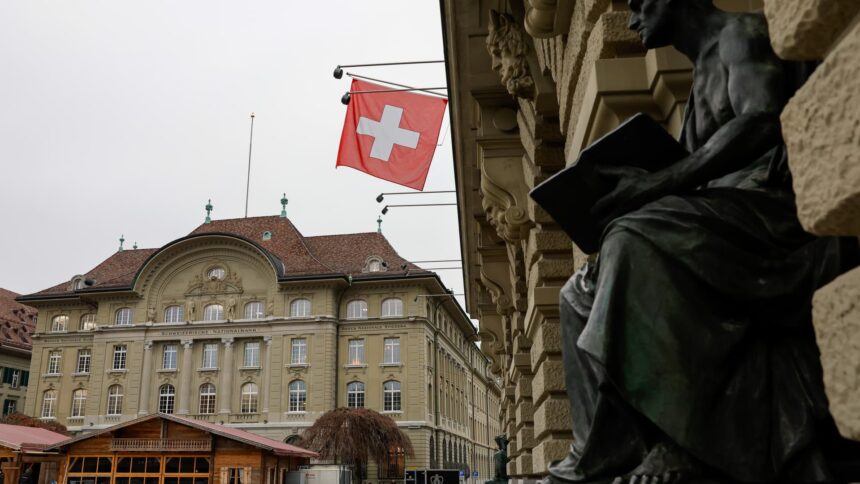The Swiss National Bank (SNB) has expressed concerns about the impact of tariffs on goods to the U.S., highlighting a significant challenge for Swiss exporters and the broader economy. The tariffs, particularly those implemented under former President Donald Trump’s administration, have reached as high as a 39% rate since their introduction in August. This levy followed a diplomatic visit where Switzerland’s President, Karin Keller-Sutter, did not secure a favorable trade agreement during discussions in Washington D.C.
In a press conference held by SNB Chairman Martin Schlegel, he emphasized the detrimental effects these tariffs could have, noting that they may dampen economic activity in Switzerland. “The U.S. tariffs present a major challenge for affected companies,” Schlegel remarked, reinforcing the central bank’s commitment to supporting economic development through its monetary policy. As expected, the SNB decided to maintain interest rates at 0%.
Schlegel further explained that, while the tariffs will indeed pose difficulties for exporters, the overall impact on the Swiss economy is anticipated to be limited. “The exporters that are directly affected have a very challenging situation, but if you look at the economy as a whole, the impact is limited,” he stated. Consequently, the SNB forecasts a growth rate of 1% to 1.5% for 2025, with a continued moderate growth of about 1% expected for 2026.
Petra Schudin, also a governing board member of the SNB, elaborated on the economic outlook, noting that it has declined due to the higher U.S. tariffs, specifically affecting exports and investments. The machinery and watchmaking sectors are expected to suffer the most from these levies. Schudin adjusted the growth outlook for 2026 down to just under 1%, a reduction from the previously anticipated growth range of 1% to 1.5% for 2025, as stated in the central bank’s policy meeting earlier in June.
In summary, the Swiss economy faces challenges ahead, particularly for specific industries directly impacted by tariffs, though the broader economic landscape is not projected to suffer a recession in the near term.







